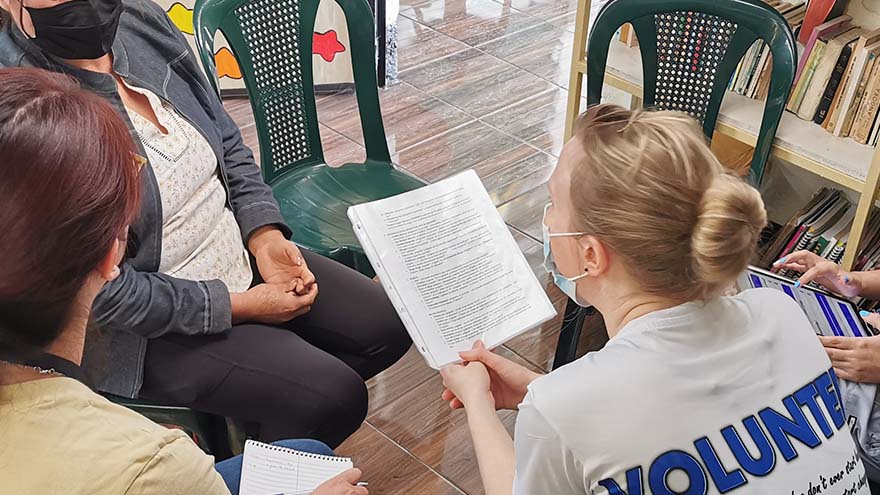Buscar
-
Questions to Ask Your Neurologist at Your First Appointment
When it comes to your neurological health, seeking the expertise of a specialist is crucial. The Renown Institute for Neurosciences provides comprehensive care for complex diseases affecting brain, spinal cord and peripheral nerves. Let us help guide you through the appointment process to ensure a productive and informative first appointment. What to Expect at Your First Appointment at the Renown Institute for Neurosciences Duration and Purpose: Your first appointment will last approximately one hour. This time allows the doctor to ask specific questions, do a thorough neurological exam and discuss your concerns. Specialized Care: You will be matched with a provider who specializes in assessing and treating your specific ailment or condition. This tailored approach ensures that you receive care from an expert who has the specialized interest and expertise to address your needs effectively. Initial Assessment: During your visit, you will first see a medical assistant who reviews your medication history and standard screening questions provided by your doctor. Following this portion of your appointment, the neurologist will ask specific and detailed questions about your condition and conduct a non-invasive neurological examination to evaluate your brain and nervous system functioning. This exam involves painless tests assessing your cognitive function and nerve operation, including tests for sensation, strength and coordination. Treatment: After performing the neurological exam and addressing your questions, the neurologist will review the possible diagnosis and treatment plan, including any medication needs to help with your condition. Finally, your doctor may discuss the role of additional testing, including imaging studies (CT/MRIs), peripheral nerve testing (EMG) or brain wave testing (EEG), which will be scheduled for a later date. Making the Most of Your Visit To make your appointment as beneficial as possible, consider the following tips: Arrive Early: Plan to arrive at least 10 minutes early to fill out any necessary check-in items before your appointment's scheduled start time. This will ensure a smooth and timely visit. Bring Insurance Information: Have your insurance details readily available to facilitate the administrative process. This will help avoid any delays or confusion. Gather Medical Records: If you have received treatment or undergone tests with other healthcare providers relevant to your condition, bring along any medical records or test results. This information will assist your neurologist in gaining a comprehensive understanding of your medical history. Prepare Questions and Concerns: Consider noting the following, which can help you better answer questions the neurologist may ask during your appointment. The frequency, duration and severity of your symptoms. Share information about any medications or treatments you have tried for the condition and the outcomes. Prioritize questions to help the neurologist answer your most significant concerns during the initial visit. Your first appointment with a doctor at the Renown Institute for Neurosciences is an opportunity to receive expert care and gain insights into the best method of treatment for your condition. By understanding what to expect and following the tips provided, you can maximize your visit and be on your way to achieving overall health and wellness.
Read More About Questions to Ask Your Neurologist at Your First Appointment
-
3,000 Miles Away But Close to Home
Overcoming poverty is not a task of charity, it is an act of justice. Like slavery and apartheid, poverty is not natural. It is man-made and can overcome by the actions of human beings. Sometimes it falls on a generation to be great. You can be that great generation. Let your greatness bloom. – Nelson Mandela, February 2005, Make Poverty History Campaign in London Lifting away the curtain that symbolized the front door, I entered a dark, cinderblock room and instantly became overwhelmed by an unpleasant odor. Working with oncology patients as a Child Life Specialist and an Occupational Therapist for over ten years, I recognized that smell. I had arrived in Guatemala – more than 3,000 miles from Reno – and it was my first day of a week-long trip where I would be serving alongside physicians in low-income communities providing free medical care for residents. My name is Brittany Jemmoua, I am an occupational therapist at Renown, and I recently volunteered with Kalan Kuxtal, a non-profit Guatemalan organization. I served alongside physicians by providing free primary care mobile clinics and home visits. The care we provided focused on prevention, intervention, education and lifestyle/medication management as we partnered with local entities, such as fire stations, community centers and schools to transform hundreds of lives. Speaking in both English and Spanish, I collected patient intake information, performed exams, tested for diabetes, and collaborated on a diabetes research project focused on daily risk assessment. Beyond these tasks, I immersed myself in the culture and learned more from the Guatemalan people than I could have ever imagined. Similar to Renown, Kalan Kuxtal Operates with Community at its Core Kalan Kuxtal, a Mayan expression meaning “life guardian,” is different from other volunteer medical trip organizations, and I took home valuable insights and lessons from their way of life that I now consider daily in my practice at Renown. I expanded my knowledge about diabetes, hypertension, pharmacology, infectious diseases, pregnancy complication, vector-borne illness and tuberculosis. We conducted home visits for socially neglected populations rather than expecting everyone to come to our clinics. I found that being welcomed into people’s homes gives you a different lens in which to view how their medical diagnoses interact with living conditions, occupations, and quality of life. This is when I met Mercedes and her mom. Her mom, Ms. Valencia, had jaundice skin and a substantial Basal Cell Carcinoma aggressively protruding from her face that impacted eating, hearing, seeing, sleep and social interactions. This opportunity to serve within their home led to an important palliative care conversation that would have been missed had we stayed in the clinic. We combed the rural neighborhoods assessing people’s risk for diabetes, taking glucose tests and educating families about their next steps. Many individuals had uncontrolled diabetes and misunderstandings regarding basic health management strategies. At the end of the day, many people demonstrated feelings of empowerment by actively offering solutions regarding how they will manage their day-to-day glucose with diet and exercise. Small actions can lead to big changes, and in the long-term, these health actions can help them avoid medication costs and focus on affording basic life necessities, such as water and electricity. Kalan Kuxtal organized a cultural day that included going to local businesses and community leaders to learn more about how they support the people of Guatemala. For example, Valhalla Macadamia Farm’s main goal is to help communities gain access to income, employment, and improved wellbeing by donating macadamia trees to families to grow and then sell macadamia products. A Weeklong Trip with Lifelong Impacts Each patient made a lasting impact on me, both personally and professionally. One specific family I saw in the clinic had a unique situation in that their two-year-old daughter, Margareth Elizabeth Cifuentes Bautista, was laboriously diagnosed with irregular corneal syndrome associated with glaucoma of congenital origin. Due to Guatemala’s limited prenatal screens and interventions, Elizabeth is nearly blind. While highly spirited and happy, she trips, bumps and feels her way through life. One barrier to her healthcare access is that her hard-working parents remain well below the poverty line, making less than $900/month. I am working to connect them with generous US Ophthalmologists and pediatric eye specialists to explore how we might save her sight and help her family. Their biggest dream is that she could recover her eyesight. “I know that this is not a life-threatening situation, but it is still something that never stops hurting me,” Jorge Cifuentes, Elizabeth’s father, said. “Unfortunately, our situation here is very hard. This country [Guatemala], although beautiful, it is very difficult to get ahead. We are people living in underprivileged conditions which complicates our situation even more. However, we are still trying to thrive by being kind and hardworking people. Thank you for helping us.” I have had the privilege of an opportunity for education, access to healthcare, employment and am aware that inequity and injustice prevail. This experience reinforced my understanding that medicine is a physically and mentally demanding profession that requires a commitment to service, continuous learning and adaptation both on local and global scales. I encourage everyone to please join me in serving the underserved by volunteering. Brittany is an experienced Occupational Therapist at Renown and volunteers with Kalan Kuxtal and other entities, such as The Robert Unsworth Foundation and Rock Steady Boxing to elevate communities. She loves being an Occupational Therapist; however, her life experiences confirm that her true calling is to become a physician. She is currently applying to medical school. Brittany is eager to earn the responsibility to improve lives and communities as their engaged physician. Brittany is tentatively scheduled to return to Guatemala at the end of this year to continue partnering with the people for a better future. You are welcome to join!

